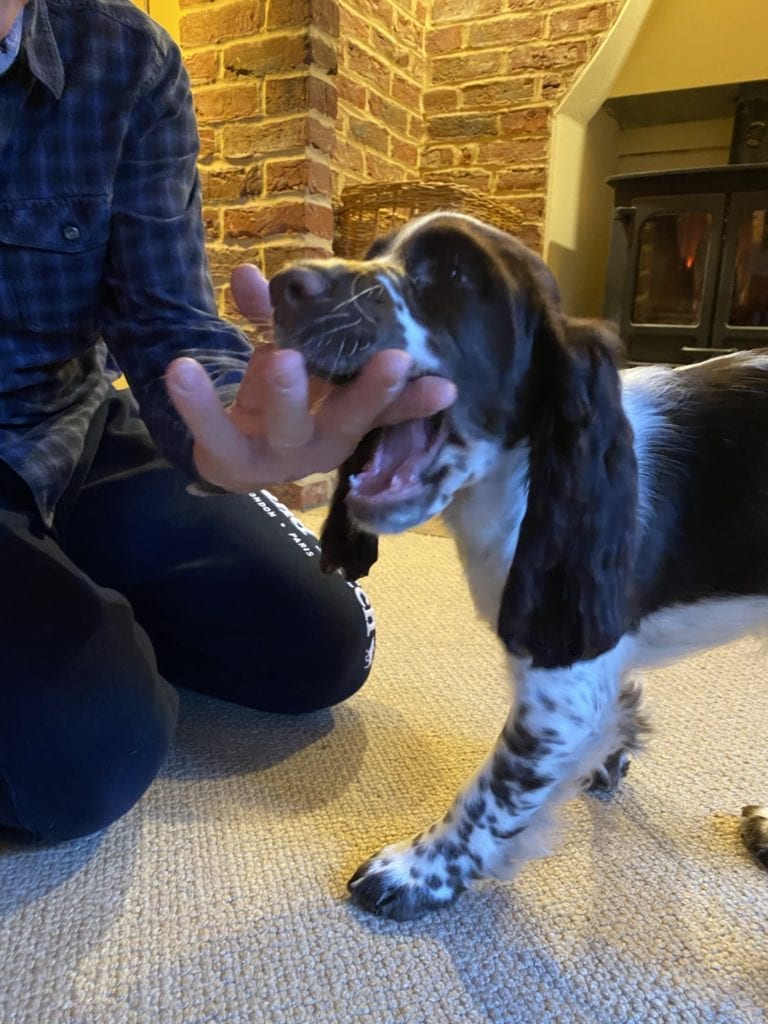So Beatrice is 13 weeks old now and although I carried on bite inhibition training from day one after schooling from her mum (and she was doing so well) it appears that a piranha took possession of her during the night a few days ago and it’s like I hadn’t even started.
Why Do Puppies Have Such Sharp Teeth?
Well, those needle-like teeth are there for several reasons. Firstly they play a role the weaning process. Vigorous nursing with sharp teeth is painful, and with mum’s reluctance to nurse, the pups begin to seek out alternate food sources. Sharp teeth compensate for their lack of strong jaws, and they allow them to tear up meat that they would begin to eat once weaned.
Finally, sharp puppy teeth teach rough pups to gauge their bite pressure when playing with their siblings and mum. This is an essential life lesson that will make them safer companions as they mature into dogs with powerful jaws.
How Do I Stop My Puppy Biting?
The easiest and quickest way is to mirror what her littermates and mum have done up until now. Puppies discover their world through their mouth. It’s how they learn so it’s important that mouthing too hard is the behaviour marked as unacceptable and not the mouthing itself.
Time Out in the Naughty Room!
When your puppy starts to bite too hard, make a loud sharp noise. Your puppy should immediately stop. If she does, make a big fuss of praising her. She most likely will bite again straight away through the excitement of the praise. Repeat as much as needed. If however she doesn’t stop, pick her straight up without saying a word to her and place her in a nearby room (a bathroom or downstairs toilet is ideal) and close the door. Leave her in there for 5-10 seconds but definitely no longer. Open the door and invite her out. It is most important that you now act as if nothing has happened and carry on as normal. Isolation is the one thing that every dog hates and is a clear message that the preceding behaviour was unwanted. Staying consistent with this will see her mouthing with much more acceptable pressure in no time!


